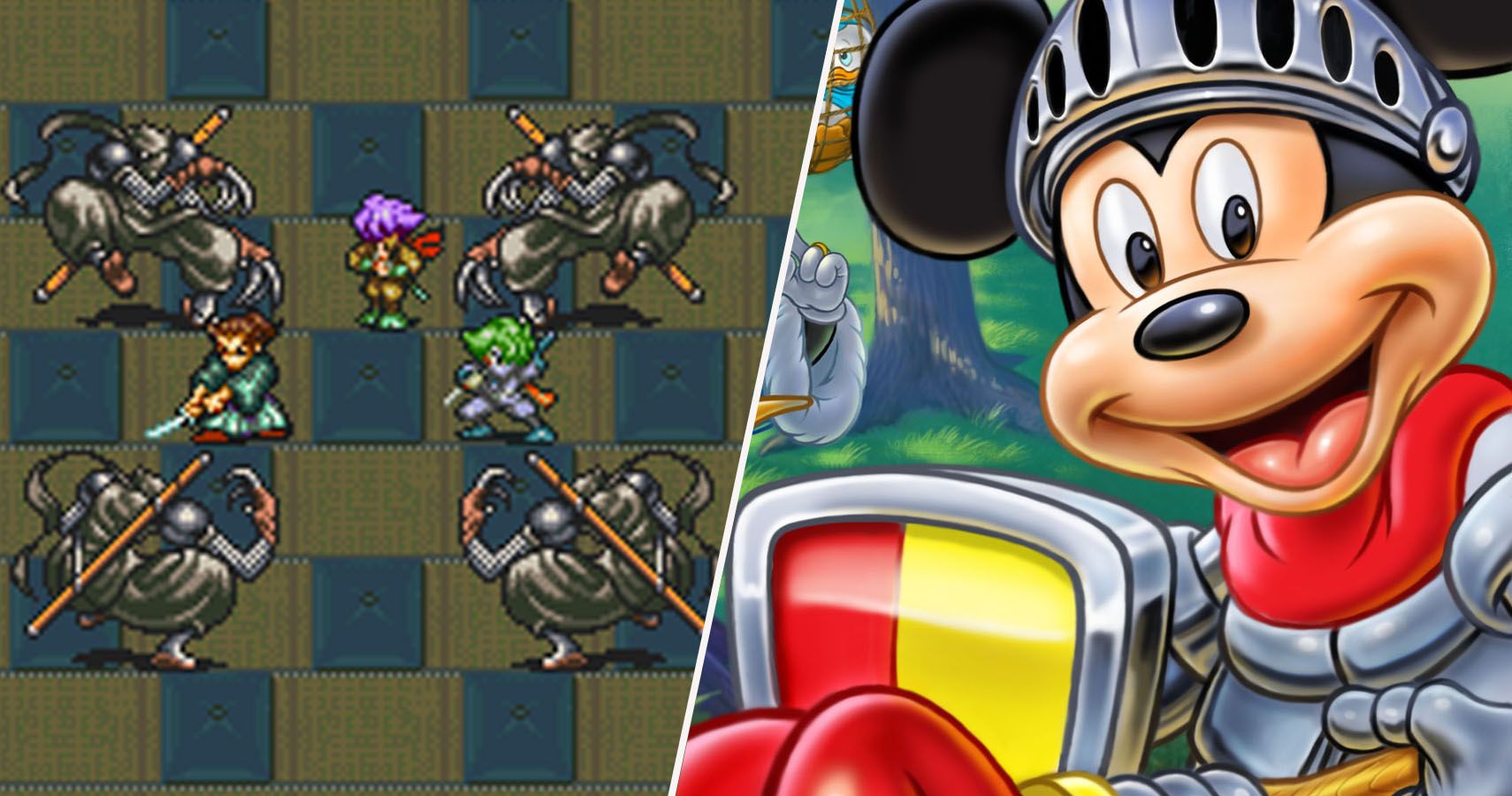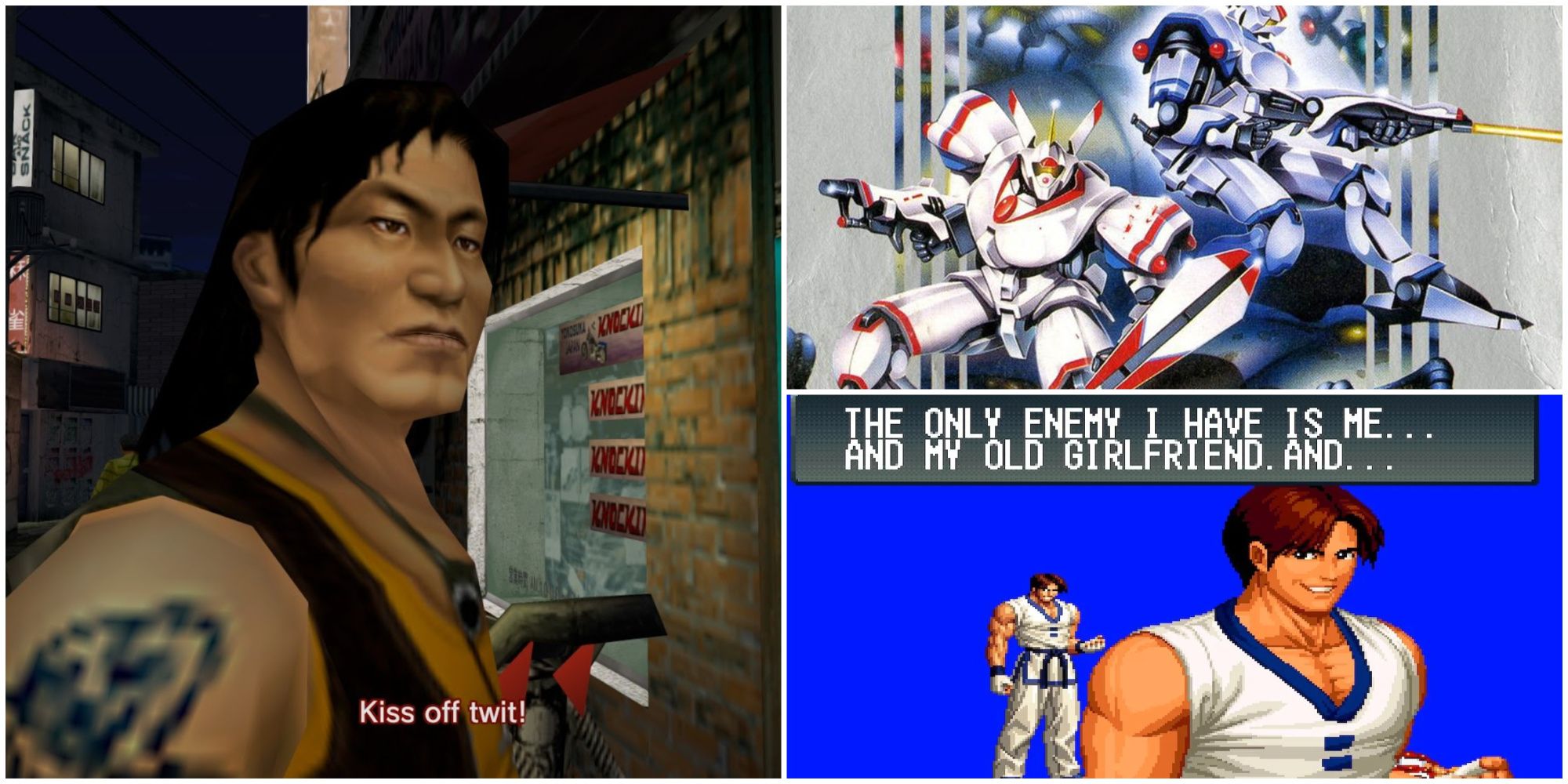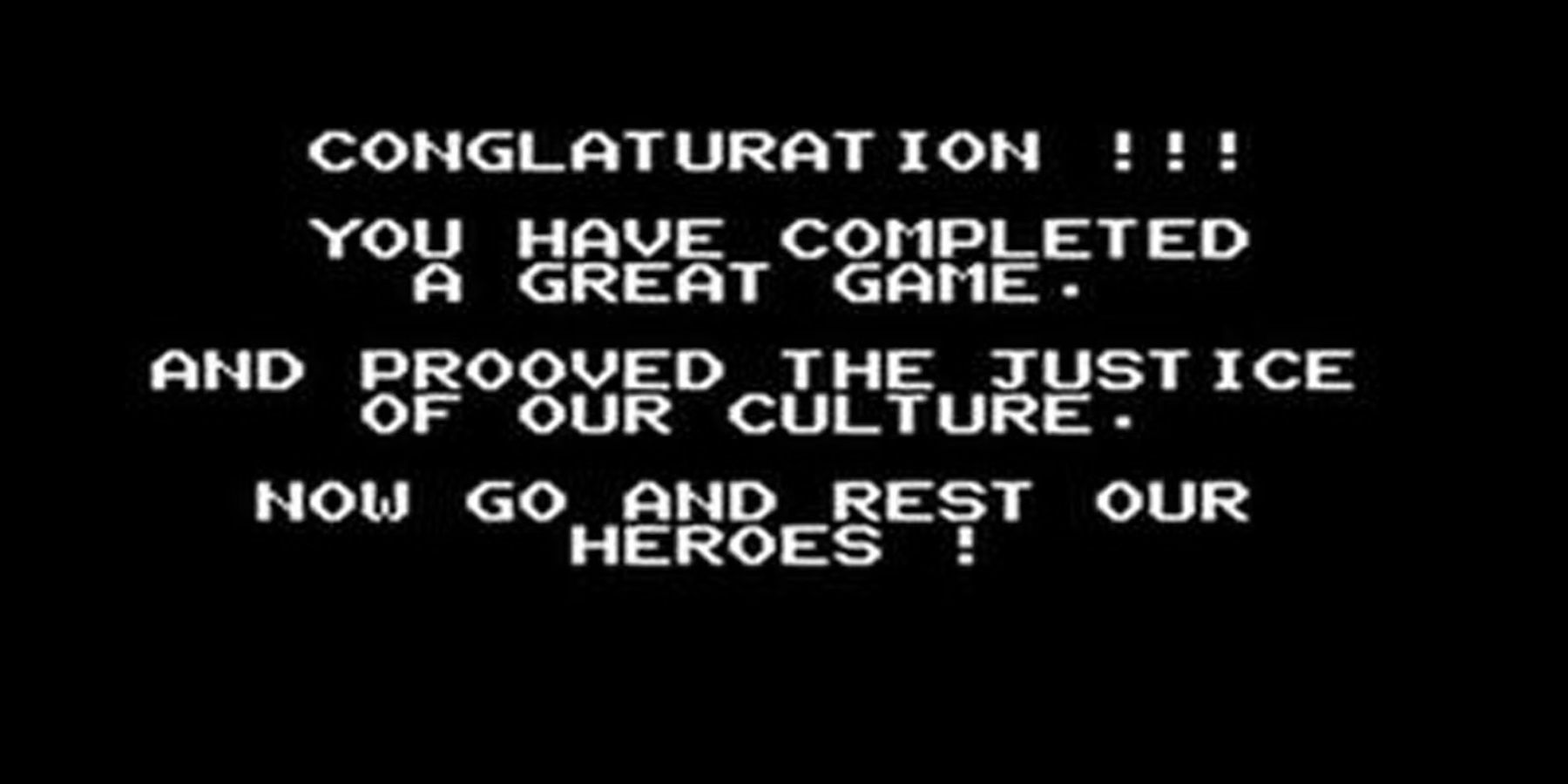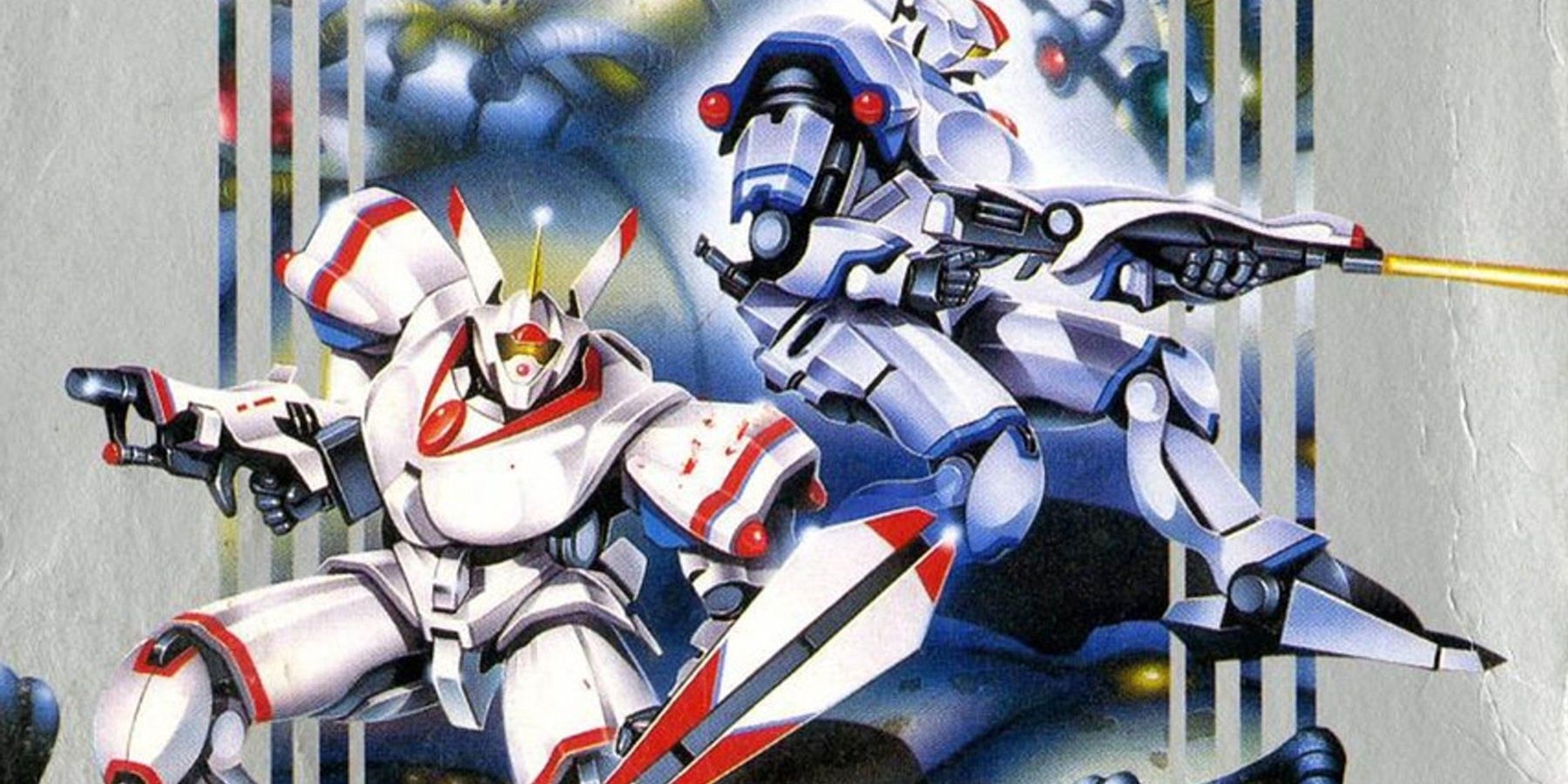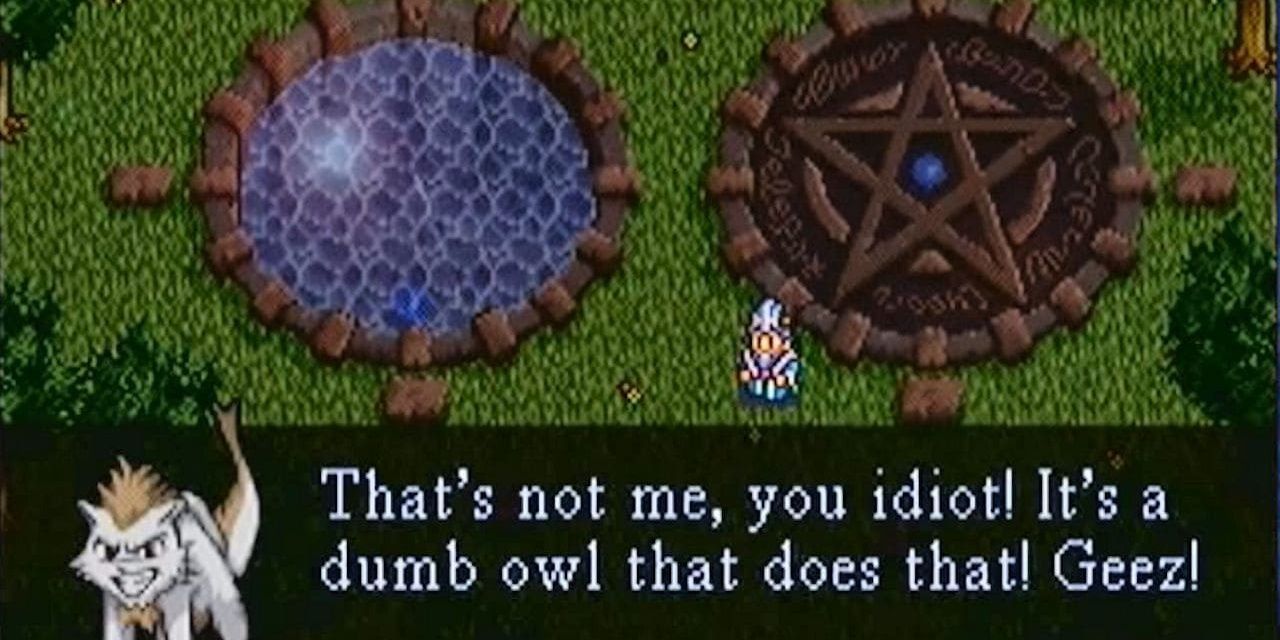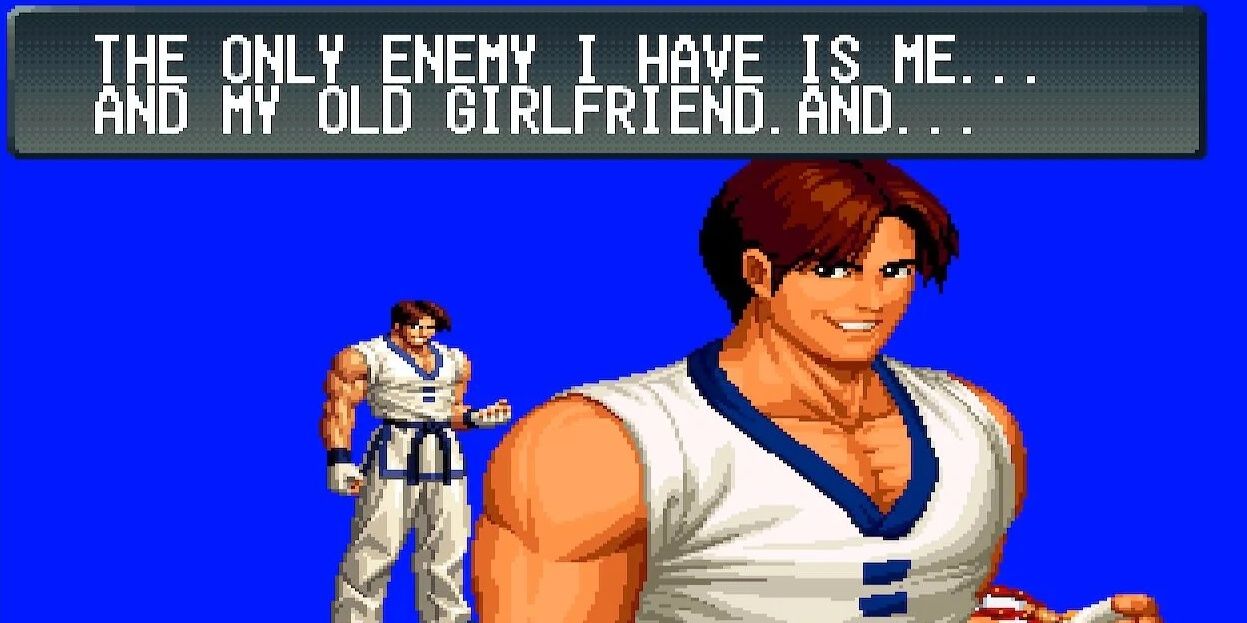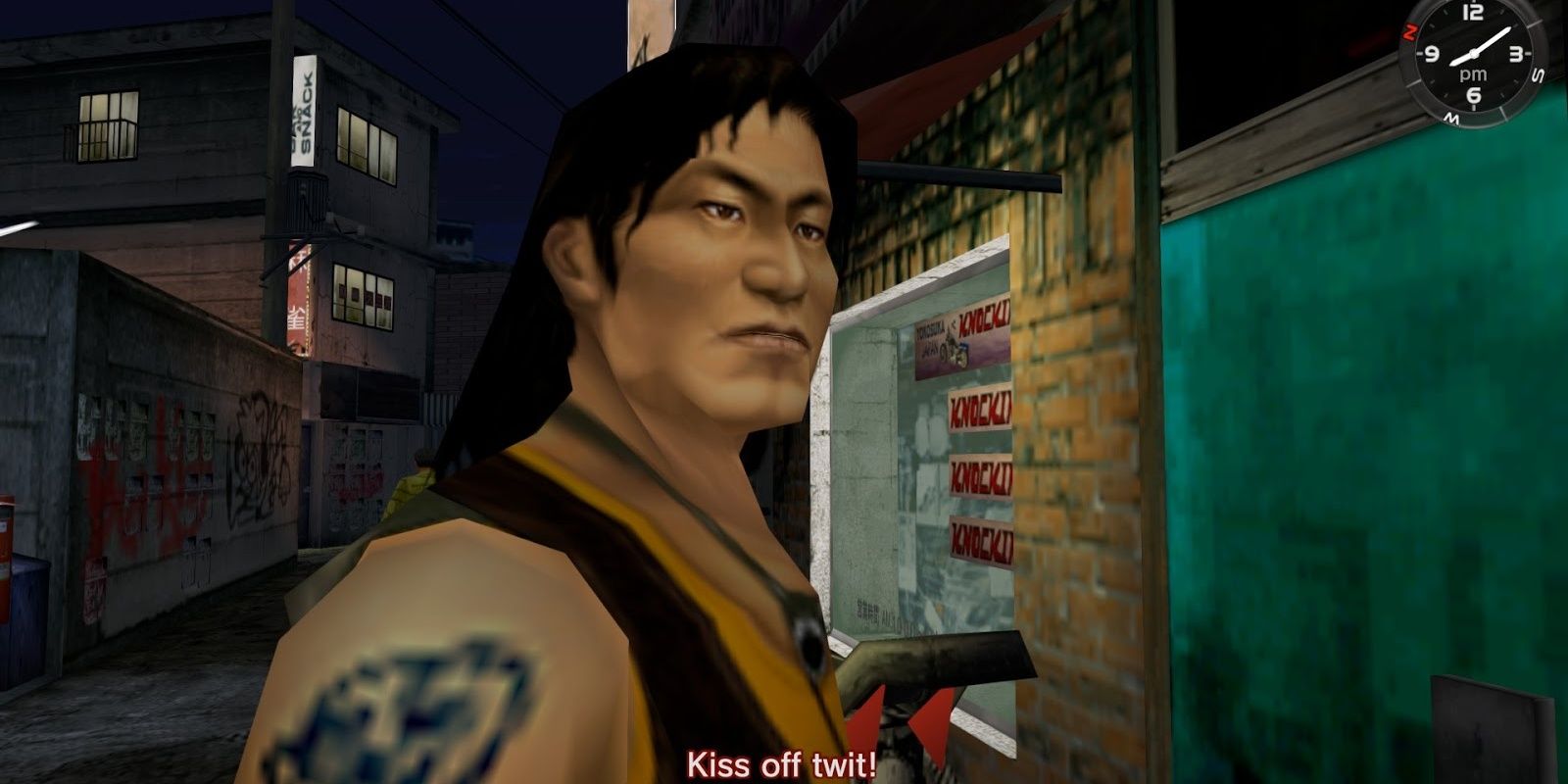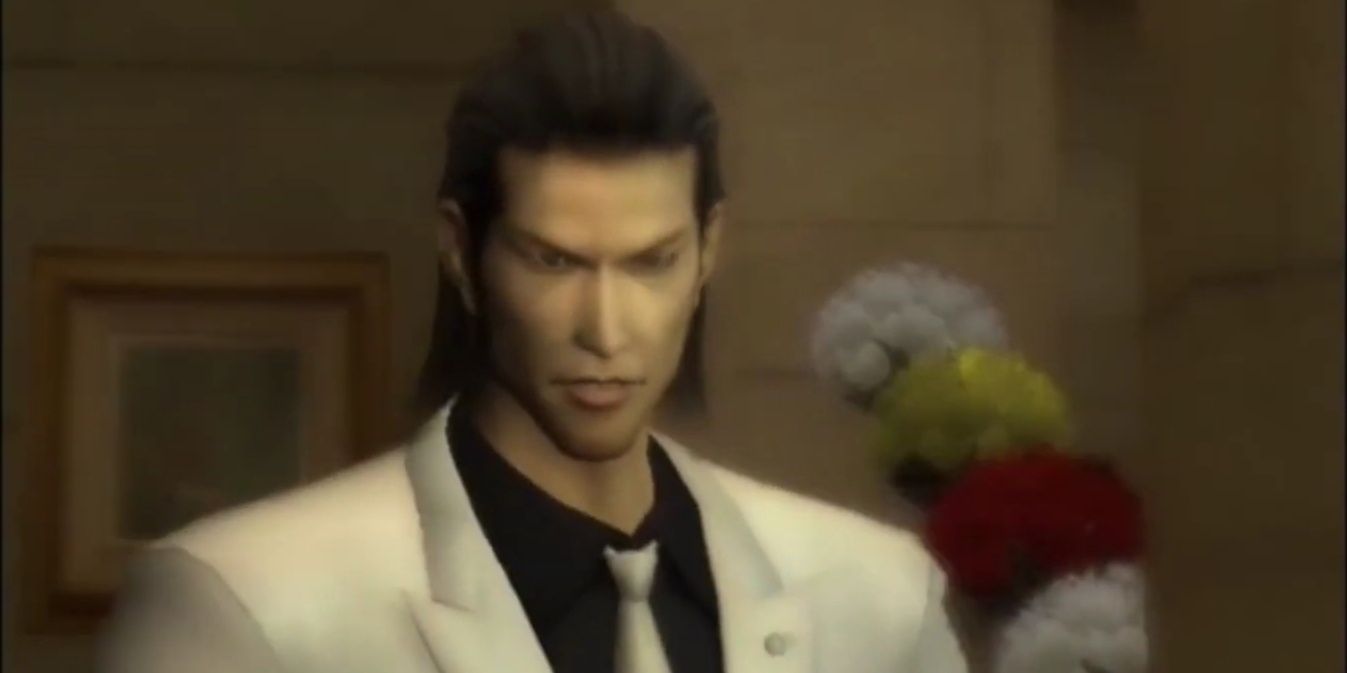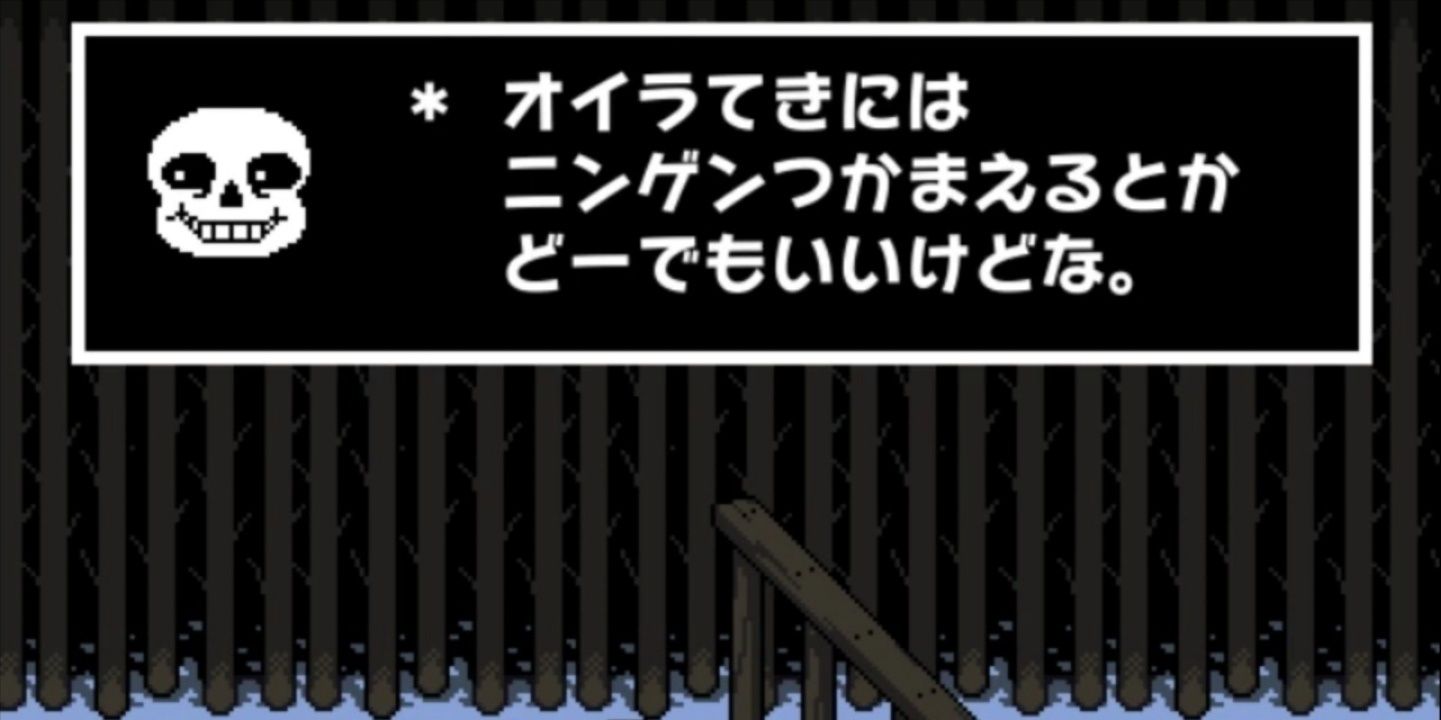Highlights
- Translators often focus on meaning over direct word translation to avoid stiff and awkward text in localization.
- Some localizations, like for Ghostbusters and Contra, had to make significant changes for different markets.
- High-paced game translation often led to quirky lines in SNK's 90s games, making them memorable to players.
Since languages can be so different from each other, with different grammatical structures, idioms, phrases, etc., translators often have to translate the meaning of the words instead of directly translating the words. Otherwise, they’d just sound dry, stiff, or just straight-up weird. This is part of localization, and it seems to get fans of movies, music, anime, games, etc., all riled up.
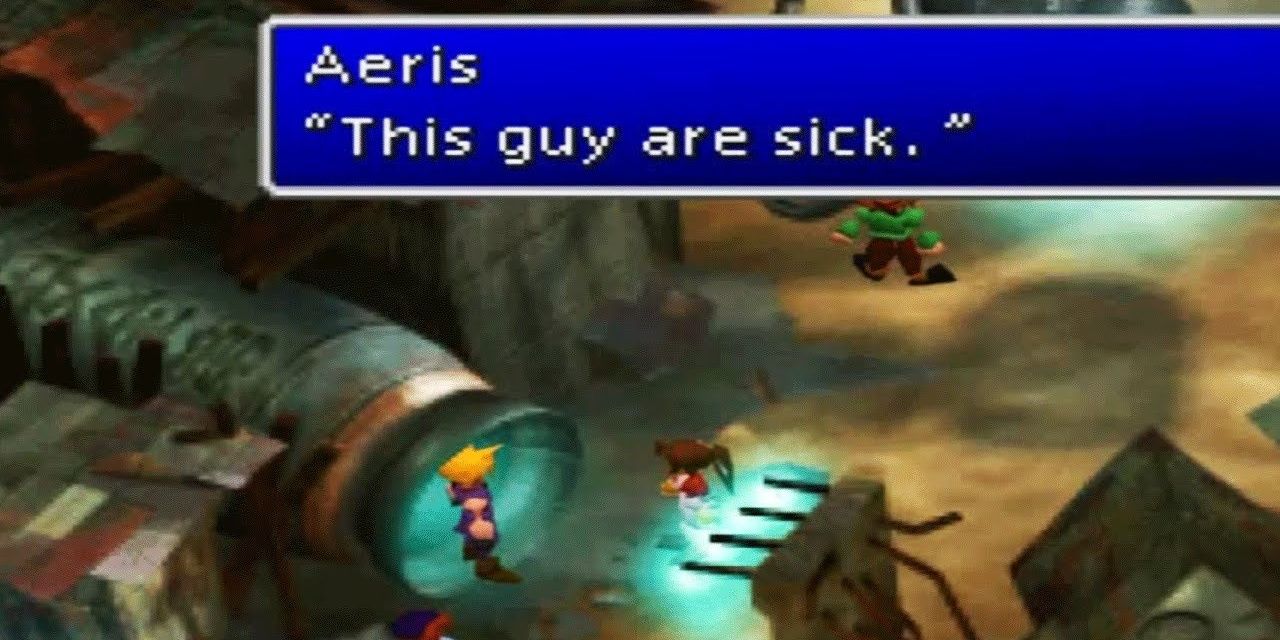
10 Things You Never Knew About Final Fantasy's Localization
The Final Fantasy franchise has been around for years, and some interesting things have happened during the localization of several titles.Or at least this is the case of certain fans online of largely Japanese media, who’d rather they were translated directly. But when localization is done well, it can give games a fresh lease on life. They could even open whole franchises to new audiences in other countries thanks to them receiving snappier lines that fit their language like a glove. That said, for one reason or another, these localizations came out kind of strange.
7 Ghostbusters
American C64 Game Gets Retranslated into English on The NES by Japanese Company
- Developer: Activision (original), Bits Laboratory (NES).
- Platforms: Commodore 64, NES, Master System, ZX Spectrum, Amstrad CPC, Atari 2600, Atari 8-bit, Apple II, MSX, and more.
- Release: October 1984 (C64), September 1986 (NES).
Calling the first Ghostbusters video game a classic seems a little optimistic, given it inspired two Angry Video Game Nerd episodes. But for its time, it was a decent adaptation of what the Ghostbusters do in 8-bit: drive around New York, capture ghosts for cash, then stop Gozer (or "the Zuul" in some ports). Even then, most people tend to praise the original Commodore 64 game rather than the jankier NES port. For one, the C64 one was already in English! It was made in-house in America by Activision co-founder David Crane.
The NES version was made by Japanese developer Bits Laboratory, who made their own oddly phrased ending. Japanese studios would often do their English work in-house at the time (e.g. The Legend of Zelda's opening screen). They weren't always fluent, but it was cheaper and easier to just publish it as it is than spend extra time editing things. So, players had to make do with what they got, and go and rest their heroes.
6 Contra
Iconic Run & Gunner Gets a Name and Asset Change Due to Politics
Not every change is due to language. The very content itself can cause a stink, as Europeans may well know. They couldn’t have decapitation in the Xbox Ninja Gaiden games or ninjas in the old games (they were renamed ‘Shadow Warriors’ instead). Then, infamously, all the human figures in the Contra games had to be replaced with robots and aliens, and the games were renamed to Probotector. Except that might not entirely be down to the violence.
The home computer ports kept Bill and Lance as people, along with the enemy soldiers, but were released under a new name: Gryzor. Chances are that European publishers were put off by the ‘Contra’ name alone, as it alluded to the rebels in the then-recent Iran-Contra scandal. The game wasn’t about them, but it was enough for Europe to insist on more changes to the game's console releases than just calling it Gryzor. The series wouldn't get to use the 'Contra' name on the continent until Contra: Legacy of War.
5 Lunar: Silver Star Story Complete
Old School Publisher Spices Up Dialogue with Pop Culture References
Lunar: Silver Star Story Complete
- Platform(s)
- Microsoft Windows , iOS , Sega Saturn , PlayStation 2 , Game Boy
- Released
- October 25, 1996
- Developer(s)
- Japan Studio
- Genre(s)
- Adventure
One aspect of localization is replacing sayings, proverbs, references, etc., from one culture to similar ones in another. For example, Super Mario RPG’s original dialogue contained quotes from Neon Genesis Evangelion, Jojo’s Bizarre Adventure, and TV commercials for Kani Dōraku, a crab-themed seafood restaurant. Since neither of those were prevalent outside Japan, they were replaced with more ordinary English lines.
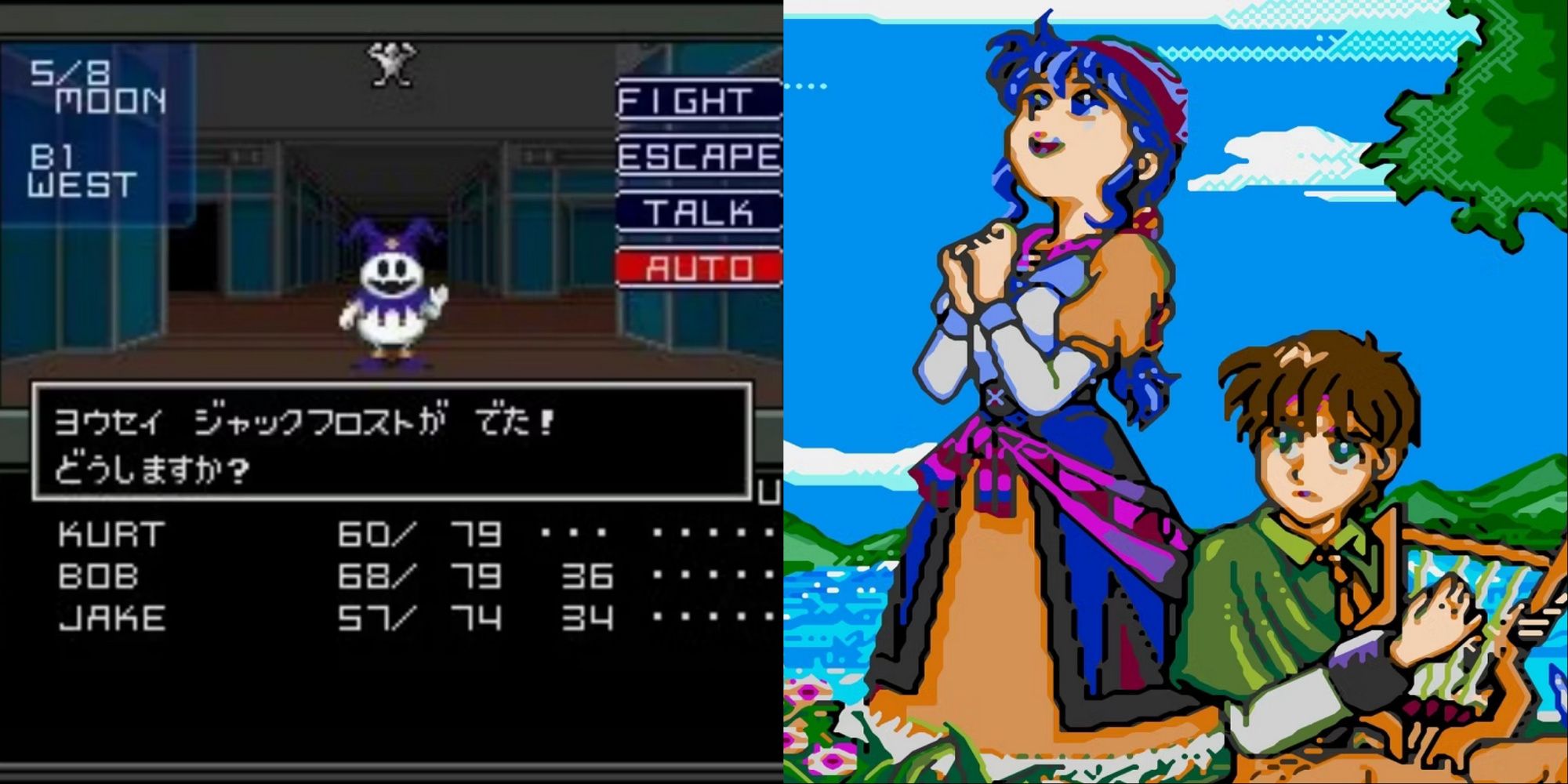
Best Sega CD RPGs, Ranked
While the Sega CD failed to beat the competition, it had some timeless RPGs available for players.Working Designs, the publishers behind many classic 1990s RPGs like Lunar: Silver Star Story Complete and Alundra, would do the opposite. They’d insert timely Western references, like the Tootsie Pop owl commercials, into the translated dialogue to give players something to chuckle about. It played out like a more family-friendly take on the 2000s Ghost Stories dub. Though, like that dub, as funny as it can be, they’re not the most ideal way to localize things.
4 SNK’s 90s Games
High-Paced Workrate Leads to Wacky One-Liners
- Developer: SNK.
- Platforms: Arcade, SNES, Genesis, TurboGrafx-16, Neo Geo AES, Neo Geo CD, PlayStation, Sega Saturn, SNES, Genesis, etc.
- Release: 1990-2004.
Still, Working Designs and companies like them only had so much time to translate their games. SNK released so many games during their peak years that their American division had trouble keeping up with them. Between the yearly King of Fighters releases, the Fatal Fury updates, Metal Slug games, etc., they often had to use their first draft scripts to get them out by their deadlines, which is why SNK’s 90s Games had some strange lines.
SVC: Chaos’ Ryu likes Sidney Poitier movies (“They call me MR Ryu!”). Fatal Fury 3’s Jin Chonrei declares. “The world is mine…except for Oshkosh!”. Winning a round in Samurai Shodown grants the player a “Victoly”, and KOF ‘98’s Ryo calls his fallen opponent “Dweebenheimer”. For each mistranslation, there was a charming, out-there quote that would make their games and characters stand out from the crowd.
3 Shenmue
Sega Rushes VA Production, Much to the Coordinator's Chagrin
Shenmue
Things weren't any more easygoing for other 90s classics. Resident Evil, Silent Hill, Castlevania: Symphony of the Night, Mega Man X4, and more Japanese games at the time had notoriously dodgy English voice acting to go with the writing. Usually, this was because their budgets couldn't afford US or Canadian studio work. However, this wasn't the case with Shenmue, which had a huge budget ranging between $47-70 million.
According to localization coordinator Jeremy Blaustein, it could've been done abroad, but director Yu Suzuki insisted on it being done in Japan so he could oversee its progress; that, and his brother-in-law ran the translation company. But their translations weren't checked before getting faxed over for recording. The lines weren't recorded with much oversight either, nor with multiple takes. Alongside other issues, like Sega hiring voice actors based on their looks, it was enough for Blaustein to call it "much more of a disaster than even you know."
2 Yakuza
Stellar Cast Enunciate Curses At Each Other Through a Rough Production
The original Yakuza was considered a spiritual successor to Shenmue, with its similar open-world, city brawling gameplay. This also extended to its English voice acting, though it was rough for different reasons. Sega managed to get some popular Western actors like Michael Madsen, Mark Hamill, Robert Atkin-Downes, and Bill Farmer this time. But the script they had to act out, and the way it was recorded, suffered from some issues.
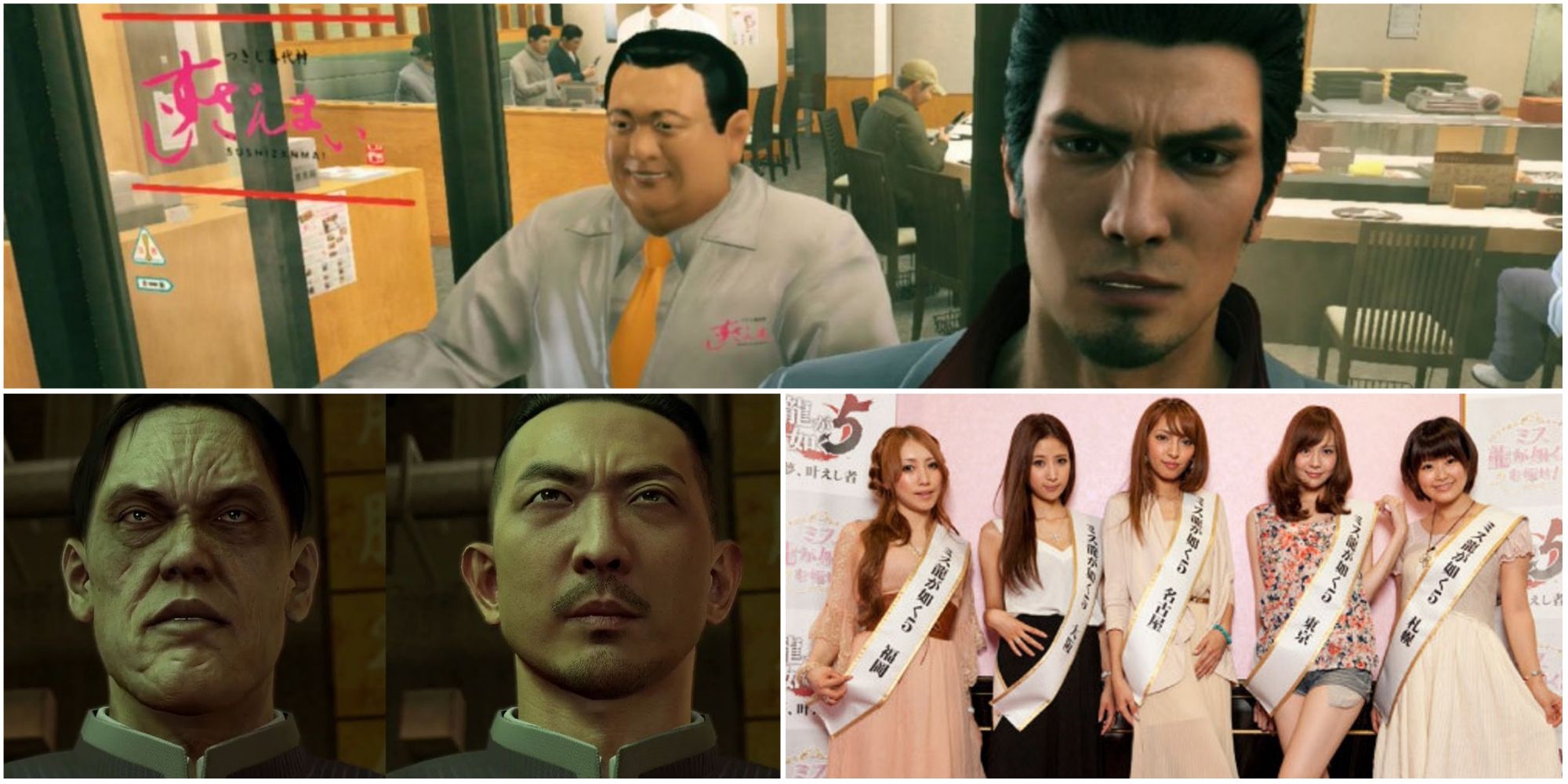
10 Strangest Celebrity Appearances In The Yakuza Series
The Yakuza series has its fair share of strange and surprising celebrity appearances.The recordings vary in quality, from being crystal clear to sounding muffled. Some lines were awkwardly timed to fit the model's lip flaps. Then, since it was an open-world game about gangsters, the dialogue was filled with curses and slurs to try and appeal to the Grand Theft Auto crowd. It didn't go down well, and Sega wouldn't dub the games again until Fist of the North Star: Lost Paradise. That said, the old dub has gained cult fame, with Michael Rosenbaum's sweary taunts as Nishiki becoming particularly popular ("Ten years in the joint...").
1 Undertale
Japanese Fans Object to Sans Sounding Like a Farmer
It’s not just English speakers who get precious over localizations. When Undertale reached Japan, the localizers worked with creator Toby Fox on how to get the game’s quirky humor and characters just right. The results were so highly rated that professional translator Clyde Mandelin wrote a book about it. Even then, some Japanese fans were disappointed and stuck to its fan translation. Their biggest issue with the official translation came down to one word: "Oira".
Japanese has a lot of ways to say “I/Me”. Most aren’t used in day-to-day life, but they give characters in games, movies, etc., flavor. “Oira” suggests the person saying it is a cheeky farmer/redneck type. It seemed perfect for the jokey skeleton Sans, and many Japanese fans got in on the gag, drawing art of Sans as a farmer. But it also caused an upset that was enough to make #オイラショック (#OiraShock) a trending topic on Twitter. It shows referring to one's self in Japanese can get quite serious.
